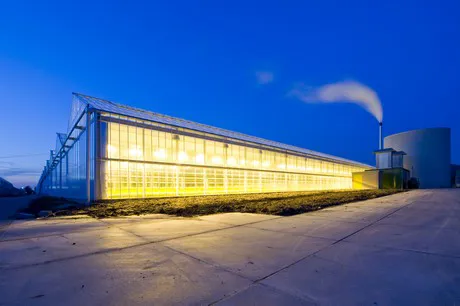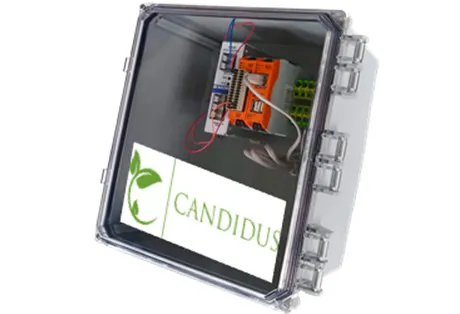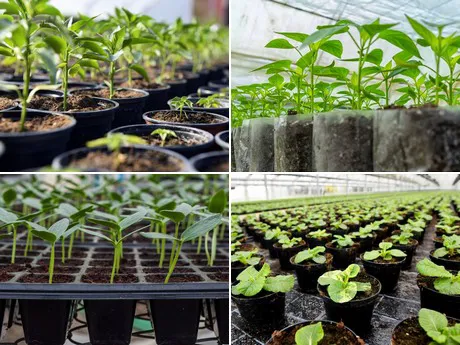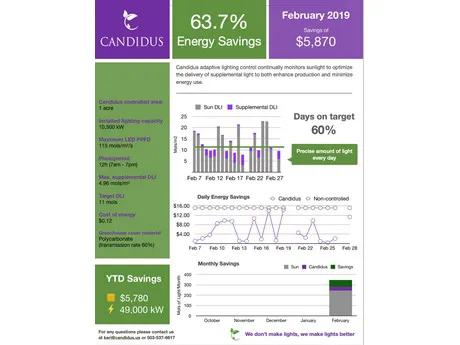Candidus is a startup company in Athens, GA, USA, that focuses on smart lighting control systems for the greenhouse industry. Their mission is to reduce the cost of supplemental lighting for greenhouse growers by implementing an adaptive lighting control system.
Candidus was co-founded by Drs. Erico Mattos and Marc van Iersel in 2017. Dr. Mattos studied photosynthesis optimization using LED lighting at the University of Georgia and previously founded a LED lighting company. Dr. van Iersel is a professor of horticulture at the University of Georgia, with a background in plant physiology and environmental measurement and control. His research focus is optimization of the cost-effectiveness of LED lighting in horticulture.

Integration with third-party lighting
Candidus was awarded a US Department of Agriculture grant to develop an innovative adaptive lighting control system. Based on research conducted at the University of Georgia, Candidus has developed an adaptive lighting control system that assures that supplemental light is provided when the crop can best use that light and only in the amount that can be effectively used by the crop. The system will not change the basic lighting settings. "Because growers, not us, should decide how to grow their crop", Marc van Iersel clarifies. "But growers can very easily change the photoperiod and daily light integral, after which the controller will implement it."
Using instantaneous light measurements and a proprietary algorithm, Candidus’ control system determines exactly how much supplemental light to provide and when. Using an industrial microcomputer, the control system monitors the ambient sun light and sends a dimming signal to third-party lights. Candidus’ supplemental lighting control system technology is particularly well-suited for use with dimmable LED fixtures, but can also be used with non-dimmable LED or HPS lights.
 The Candidus controller
The Candidus controller
Candidus does not make light fixtures. Instead, the focus is on development of optimal control systems for third party lights. The company is already working with several light manufacturers. "So far we have worked with Fluence BioEngineering and our first round of grower trials used their VYPRx Plus lights. We are also working with Illumitex and Osram", Marc says. "Most dimmable LED fixtures take a 0 – 10 VDC signal to control light output and our technology is fully compatible with such lights, regardless of brand. Osram uses a proprietary protocol for dimming, so that requires coordination between Osram and Candidus. But our hardware is fully capable of dimming those lights as well."
"Adjusting the lighting is simple and there really are no big challenges on that end of things as long as lighting manufacturers use dimmable drivers", Marc continues. "Some companies, like Signify, use non-dimmable drivers and those lights can only be turned on and off. The bigger challenge is with lighting systems that may not be designed in a way that allows growers to actually achieve their goals. For example, the overall lighting capacity may not be enough to allow growers to actually achieve the daily light integral when needed."

Web-based interface
Greenhouse growers use the control system through a web-based interface, entering only a few simple settings: the daily light integral target value, the time the lights should come on, and when the light should go off. If needed, growers can also program in low-intensity night interruption lighting for control of flowering of photoperiodic crops.

A sample of the monthly report growers get. Click here for a bigger version.
While the crop growth isn't monitored directly, Marc says they can make recommendations for a wide range of crops. "If growers are willing to share information on crop growth, we can make refinements in the lighting strategy."
At the moment, the Candidus platform doesn't tie in with existing cultivation software, but the company is interested in doing this in the future. "Hopefully, our software can be an integral component of control systems made by companies like Priva and Hoogendoorn", Marc says.
For more information Candidus
Candidus
info@candidus.us
www.candidus.us
